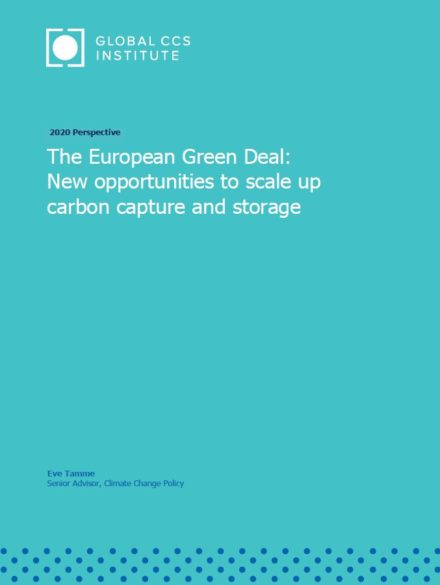刊行物、報告書および研究調査
2020 Perspective : The European Green Deal: New opportunities to scale up carbon capture and storage
27th February 2020
The recent reports of the Intergovernmental Panel on Climate Change (IPCC), and the Commission vision for a climate neutral Europe , have mobilised support for climate neutrality by 2050 by most EU Member States. Balancing sources and sinks by 2050, and from that point onwards achieving net negative emissions, can only be delivered through a major economy-wide transformation and by substantially stepping up the use of all climate change mitigation and carbon removal technologies. The European Green Deal as the new big European project is an enormous challenge but also an opportunity to lead by example and transform the European economy.
This overview takes a closer look at the European Green Deal with its extensive list of initiatives, and highlights what to watch out for in the coming days, months and years regarding low carbon technologies like carbon capture and storage (CCS). This paper explores how climate targets, governance, just transition, carbon border adjustment, industrial strategy, hydrogen, financing and infrastructure can support CCS technologies. The second part of the paper highlights the three main challenges for CCS in the existing legislation that need to be considered in the upcoming wave of revisions and new initiatives.
It’s a snapshot of where we are as of February 2020, with a list of initiatives and processes to choose from when engaging with policymakers and stakeholders.
This piece was authored by Eve Tamme, Senior Advisor for Climate Change Policy at the Global CCS Institute.
Disclaimer
The content within the Global CCS Institute Publications, Reports and Research Library is provided for information purposes only. We make every effort and take reasonable care to keep the content of this section up-to-date and error-free. However, we make no claim as to its accuracy, currency or reliability.
Content and material featured within this section of our website includes reports and research published by third parties. The content and material may include opinions and recommendations of third parties that do not reflect those held by the Global CCS Institute.
